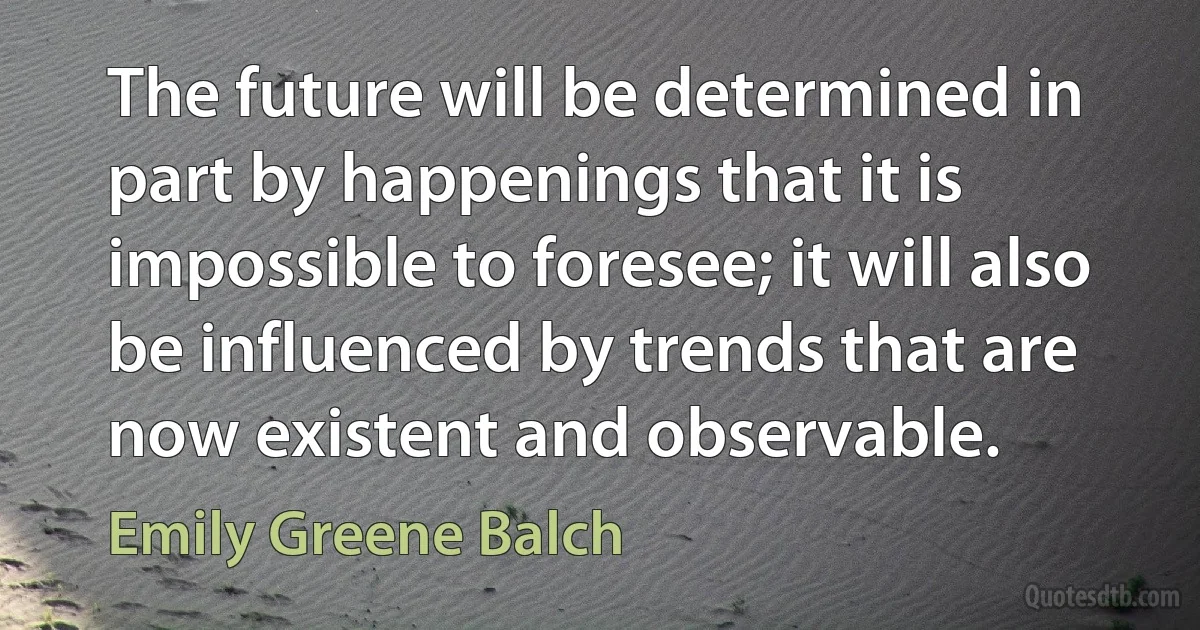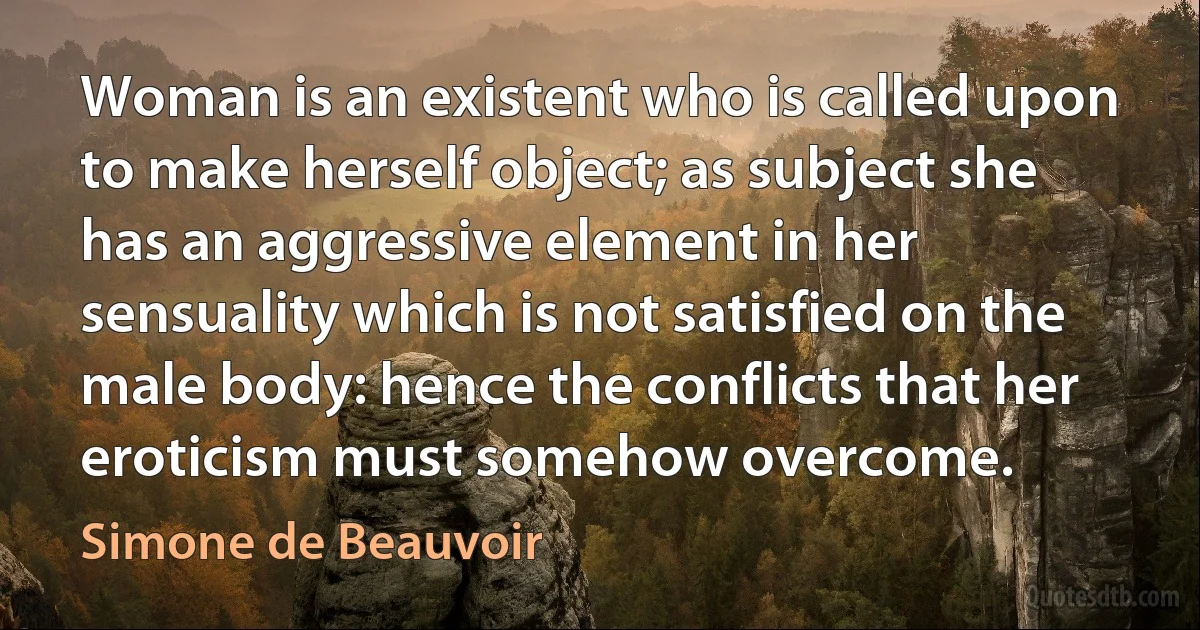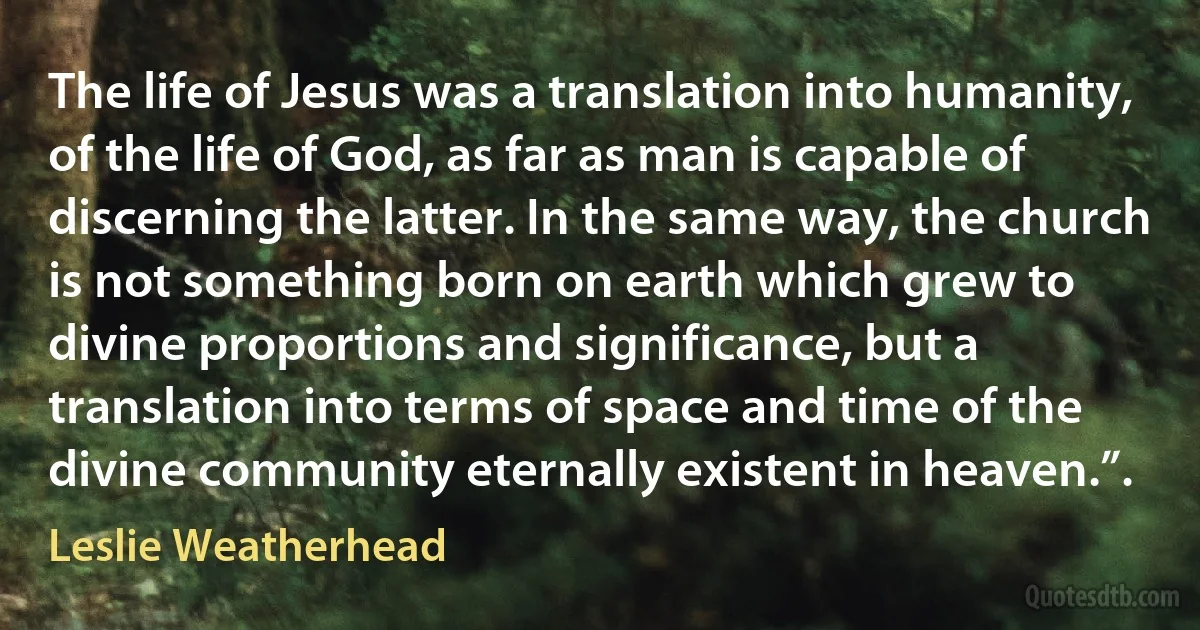Existent Quotes
Each age is characterized by its own astronomical myriads of new, special-case experiences and problems to be stored in freshly born optimum capacity human brains - which storages in turn may disclose to human minds the presence of heretofore undiscovered, unsuspectedly existent eternal generalized principles.

Buckminster Fuller
The tendency of modern physics is to resolve the whole material universe into waves, and nothing but waves. These waves are of two kinds: bottled-up waves, which we call matter, and unbottled waves, which we call radiation or light. If annihilation of matter occurs, the process is merely that of unbottling imprisoned wave-energy and setting it free to travel through space. These concepts reduce the whole universe to a world of light, potential or existent, so that the whole story of its creation can be told with perfect accuracy and completeness in the six words: ‘God said, Let there be light'.

James Jeans
The fundamental principle of the atheism of Spinoza is the doctrine of the simplicity of the universe, and the unity of that substance, in which he supposes both thought and matter to inhere. There is only one substance, says he, in the world; and that substance is perfectly simple and indivisible, and exists every where, without any local presence. Whatever we discover externally by sensation; whatever we feel internally by reflection; all these are nothing but modifications of that one, simple, and necessarily existent being, and are not possest of any separate or distinct existence. Every passion of the soul; every configuration of matter, however different and various, inhere in the same substance, and preserve in themselves their characters of distinction, without communicating them to that subject, in which they inhere.

Baruch Spinoza
In immediate self-consciousness the simple ego is absolute object, which, however, is for us or in itself absolute mediation, and has as its essential moment substantial and solid independence. The dissolution of that simple unity is the result of the first experience; through this there is posited a pure self-consciousness, and a consciousness which is not purely for itself, but for another, i.e. as an existent consciousness, consciousness in the form and shape of thinghood. Both moments are essential, since, in the first instance, they are unlike and opposed, and their reflexion into unity has not yet come to light, they stand as two opposed forms or modes of consciousness. The one is independent whose essential nature is to be for itself, the other is dependent whose essence is life or existence for another. The former is the Master, or Lord, the latter is the Bondsman.

Georg Wilhelm Friedrich Hegel
In Mohammedanism the limited principle of the Jews is expanded into universality and thereby overcome. Here, God is no longer, as with the Asiatics, contemplated as existent in immediately sensuous mode but is apprehended as the one infinite sublime Power beyond all the multiplicity of the world. Mohammedanism is, therefore, in the strictest sense of the world, the religion of sublimity.

Georg Wilhelm Friedrich Hegel
It is as if there were in the human consciousness a sense of reality, a feeling of objective presence, a perception of what we may call something there, more deep and more general than any of the special and particular senses by which the current psychology supposes existent realities to be originally revealed.

William James
Of the origin of things we know nothing, and can know nothing. Perfection does not reveal itself to us as existent in the beginning; but as something that ought to be, something new which we are to help create. Somehow the secret of the universe is hidden in our breast. Somehow the destinies of the universe depend upon our exertions.

Felix Adler
The plurality that we perceive is only an appearance; it is not real. Vedantic philosophy... has sought to clarify it by a number of analogies, one of the most attractive being the many-faceted crystal which, while showing hundreds of little pictures of what is in reality a single existent object, does not really multiply that object.

Erwin Schrödinger
The notion that all these fragments are separately existent is evidently an illusion, and this illusion cannot do other than lead to endless conflict and confusion. Indeed, the attempt to live according to the notion that the fragments are really separate is, in essence, what has led to the growing series of extremely urgent crises that is confronting us today. Thus, as is now well known, this way of life has brought about pollution, destruction of the balance of nature, over-population, world-wide economic and political disorder and the creation of an overall environment that is neither physically nor mentally healthy for most of the people who live in it. Individually there has developed a widespread feeling of helplessness and despair, in the face of what seems to be an overwhelming mass of disparate social forces, going beyond the control and even the comprehension of the human beings who are caught up in it.

David Bohm
It provided specifically against an infraction on the part of France of the state of possession then created: It provided against the Return of the Usurper or any of his Family to the throne: It further designated the Revolutionary Power which had convulsed France and desolated Europe, as an object of it's constant solicitude, but it was the Revolutionary power more particularly in its Military Character actual and existent within France against which it intended to take Precautions, rather than against the Democratic Principles, then as now, but too generally spread throughout Europe.

Robert Stewart, Viscount Castlereagh
All oppression creates a state of war. And this is no exception. The existent who is regarded as inessential cannot fail to demand the re-establishment of her sovereignty.
Today the combat takes a different shape; instead of wishing to put man in a prison, woman endeavours to escape from one; she no longer seeks to drag him into the realms of immanence but to emerge, herself, into the light of transcendence.

Simone de Beauvoir



